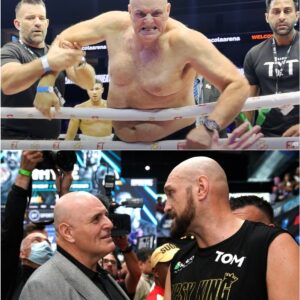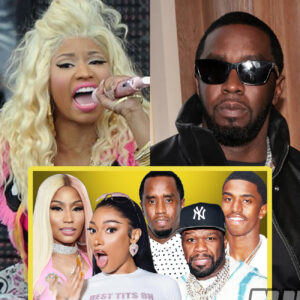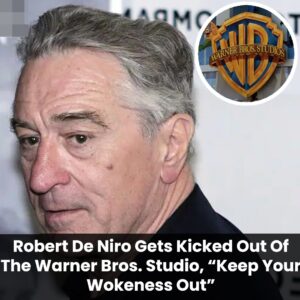### Cat Williams: The Uncompromising Whistleblower of Hollywood
Comedian Cat Williams has emerged as a controversial figure, shedding light on the hidden realities behind the glamorous facade of the Hollywood industry.
With relentless determination, Williams has unveiled startling revelations that have sent shockwaves throughout the entertainment world.

His outspoken nature, especially concerning topics like the alleged conspiracy surrounding Michael Jackson’s death and the portrayal of black actors in traditionally feminine attire, has made him a polarizing figure within the industry.
Williams’ critiques are not without substance. He claims that Hollywood often undermines black talent, sidelining them in favor of less deserving counterparts.
This viewpoint was vividly illustrated during his appearance on V-103’s “Frank and Wanda in the Morning” show, where he scrutinized several black comedians, including Tiffany Haddish.
Williams asserted that Haddish’s rise to fame might not have been as organic as portrayed, suggesting that she had not yet proven her comedic prowess through traditional avenues such as tours and specials.
“Tiffany Haddish has been doing comedy since she was 16,” Williams pointed out. “You can’t tell me your favorite Tiffany Haddish joke. Why? Because she ain’t done a tour yet, she ain’t done a special.”
He questioned the authenticity of Haddish’s public persona and implied that her success could be attributed to strategic industry maneuvers rather than genuine talent.
Despite the criticism, Haddish’s defenders argue that her relatability and authenticity have endeared her to audiences, a point Williams himself found debatable.
Williams’ critique extends beyond individual actors to broader industry practices. He has voiced concerns about the systemic pressures on black male comedians to wear dresses for comedic effect, a trope he believes perpetuates negative stereotypes.
During another interview with Jamal Finley, Williams discussed instances where prominent black comedians like Kevin Hart, Eddie Murphy, and Jamie Foxx donned dresses in their performances.
Williams suggested that these acts are part of a broader, perhaps coercive, industry trend that disproportionately affects black entertainers.
“It is possible that there isn’t anything funnier than a guy in a dress,” Williams remarked, highlighting the perceived racial disparity in such comedic choices.
He argued that the amusement derived from these performances is often rooted in racial dynamics, noting that a black man in a dress garners a different reaction than a white man in the same attire.
This critique underscores his belief that the entertainment industry exploits black talent in ways that are racially insensitive and strategically manipulative.
One of Williams’ most controversial assertions involves the existence of a secretive elite, often referred to as the Illuminati, which he claims exerts considerable influence over Hollywood.
He has warned fellow black artists to be cautious of this alleged group, suggesting that it manipulates career trajectories and stifles genuine talent in favor of more controllable figures.
Williams mentioned prominent figures such as Bill Gates, George Soros, Warren Buffett, and Oprah Winfrey as part of this elite, implying their involvement in shaping the industry’s landscape.
“These are the most elite clubs in the world,” Williams stated, urging black artists to be wary of the potential consequences of engaging with such groups.
His allegations, while dramatic, resonate with a longstanding narrative among some circles that attributes systemic inequities to the machinations of powerful, unseen forces.
Williams’ own career reflects the struggles he believes are emblematic of a black comedian’s journey in Hollywood. Despite his success and critical acclaim, including an Emmy win for his guest role on “Atlanta,” Williams has faced numerous challenges that he attributes to his refusal to conform to industry expectations.
He has been vocal about the backlash he has endured, which he believes stems from his outspokenness and unwillingness to compromise his principles.
“I didn’t understand that they had to sting me a million times,” Williams reflected, comparing his experiences to those of historical figures like Martin Luther King Jr. and Jesus Christ, who also faced immense resistance for their beliefs.
He acknowledged the personal toll of his candor, noting that his willingness to address grievances publicly has made him a target within the industry.
Despite the controversies surrounding his statements, Williams continues to be a significant voice in the discourse on racial dynamics in Hollywood.
His critiques challenge the industry to reflect on its practices and consider the impact of its decisions on black talent.
Whether one agrees with Williams’ assertions or not, his willingness to speak out against perceived injustices has sparked important conversations about equity and representation in the entertainment world.
In conclusion, Cat Williams stands as a prominent whistleblower in Hollywood, unafraid to address controversial topics and challenge the status quo.
His critiques of the industry’s treatment of black actors, the pressures to conform to certain stereotypes, and the influence of powerful elites underscore a broader narrative of systemic inequities.
Williams’ journey, marked by both success and adversity, highlights the complexities faced by black entertainers in Hollywood and serves as a call to action for greater authenticity and fairness in the industry.
News
Drama in the Ring! Tyson Fury Terminates John Fury’s Role as Trainer After Brutal Upset by Oleksandr Usyk
In a dramatic turn of events, Tyson Fury has decided to terminate his father John Fury’s role as his trainer following a brutal upset by Oleksandr Usyk. The unexpected loss has sent shockwaves through the boxing community and led to…
(VIDEO) Megan Thee Stallion BAITS Nicki Minaj into another rap beef? | 50 Cent DRAGS Diddy’s son Christian
**Christian Combs Disses 50 Cent and 50 Responds: A Clash of Hip-Hop Titans** In the realm of hip-hop, beefs and controversies are almost as common as chart-topping hits. Recently, a new chapter unfolded in the ongoing saga between Christian Combs,…
Breaking: Gordon Ramsay Throws Robert De Niro Out Of His Restaurant, “Don’t Come Back Here You Woke Baby”
In a dramatic and unexpected turn of events, renowned celebrity chef Gordon Ramsay has made headlines by reportedly throwing Academy Award-winning actor Robert De Niro out of his restaurant. The incident, which has sparked widespread media attention and public debate,…
(VIDEO) Joe Rogan & Matthew McConaughey Exposes 7 Actors Hollywood BETRAYED
**Unveiling the Dark Side of Hollywood: The Stories of Matthew McConaughey, Keanu Reeves, and Wesley Snipes** Hollywood, often seen as a dreamland of glitz and glamour, has a hidden underbelly that reveals a starkly different reality for some of its…
Breaking: Denzel Washington Rejects $100 Million Disney Offer to Work with ‘Woke’ Robert De Niro, ‘He’s a Creepy Old Man’
In a recent turn of events that has left Hollywood in a state of shock and contemplation, Denzel Washington, a figure synonymous with integrity and talent in the film industry, has made headlines by rejecting a colossal $100 million offer…
Breaking: Robert De Niro Gets Kicked Out Of The Warner Bros. Studio, “Keep Your Wokeness Out”
In a shocking turn of events that has sent ripples through Hollywood, iconic actor Robert De Niro was reportedly thrown out of Warner Bros. Studios. The reason cited? Spreading his “creepiness.” This incident has sparked intense debate and controversy, leaving…
End of content
No more pages to load











